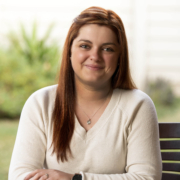: Insights gained by science communicators during the Covid-19 pandemic: Perspectives from Southern Africa (2021 – 2023)
There is no doubt that the Covid-19 pandemic has been the most important news event globally in recent history (Safford et al, 2021:1). Since early in 2020, for two years, the pandemic made headlines internationally as well as in Southern Africa. As Ziegler et al (2021) put it: “For those dedicated to science communication, 2020 will probably be remembered as the year their fields took on new significance in the public eye”. The speed at which new information about the virus, treatment options, preventing transmission, public regulations and other important public information came out, “necessitated an intensity of science communication never seen before” (Massarani et al, 2020). The role of science communicators in a pandemic is particularly important. Ensuring that scientific information is communicated “effectively to the public is almost always challenging and even more so during a pandemic” (Abdool Karim, 2022:1). Because science communicators act as a bridge between the scientific community and the public, the proposed study seeks to explore the lived experiences of science communicators in Southern Africa during the Covid-19 pandemic, specifically between 2020 and 2023. This will include gauging their professional experiences as well as personal (or “lived”) experiences that influenced their professions or professional practice during the pandemic. The study will comprise three distinct, but related, research approaches:
1. A secondary analysis of the data for Southern Africa collected as part of the international, EU-funded Global Science Communication and Perception (GlobalSCAPE) project diary study;
2. Structured interviews with 20 science communicators in Southern Africa about their experiences during the Covid-19 pandemic.
3. Focus groups with the same science communicators in Southern Africa about experiences and insights gained during the Covid-19 pandemic.
For the first research approach, a secondary analysis of the data collected as part of the international, GlobalSCAPE diary study will be conducted. The project runs from 1 March 2021 to 28 February 2023 and aims to “contribute to a more comprehensive picture of science communication by focusing on science communication professionals working in non-Western countries and in regions where science communication can be challenging or under-valued” (CORDIS, 2022).
For the second research approach, 20 science communicators in Southern Africa, who participated in the GlobalSCAPE study, will be identified for further structured interviews. They will be invited to share their professional experiences and lessons they learnt in public science communication, especially during the pandemic.
For the third research approach, focus groups will be organised with the same science communicators in Southern Africa who participated in the GlobalSCAPE study. Each participant will be asked to participate in at least one of the focus groups to gain insights into their shared experiences and insights.
Supervisor: Dr M Joubert, CREST, Stellenbosch University



